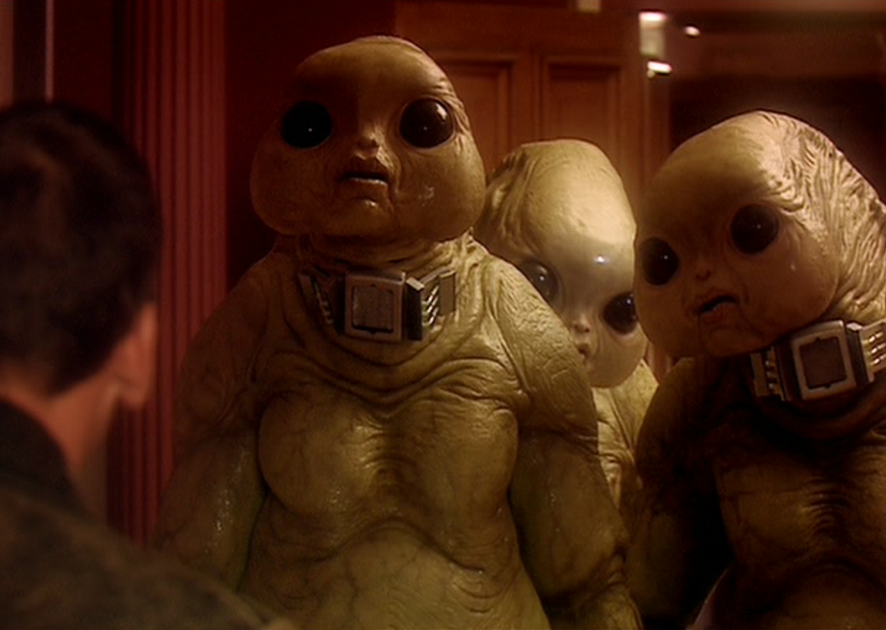|
WITH David Tennant’s hugely popular reign as the Doctor introducing many to DOCTOR WHO, it is easy to forget Christopher Eccleston’s one-season tenure, and the monumental task showrunner Russell T Davies faced bringing back a beloved science-fiction programme with a legacy spanning over 40 years. Revisiting the season, however, it becomes apparent how the scripts penned for the revival’s first season are a confident and bold selection of stories, with each episode becoming an audacious affirmation of the programme’s values.
The two-parter “Aliens of London / World War Three” embodies this audaciousness. The pair of episodes are irreverent through-and-through and provide a 21st century take on the show’s conventional alien invasion plots. The episodes see the alien crime-syndicate the Slitheen, disguised as members of parliament, stage an alien attack in order to launch a nuclear war on a fabricated alien threat for the sake of profit. DOCTOR WHO has never been a stranger to using aliens as parables for real-world issues, with the Daleks and Cybermen being allegories for fascism and Stalinism respectively. As such, the Slitheen parliamentary war profiteers continues this tradition of the Doctor’s foes being used to lampoon a contemporary political issue and imparting the show’s decades-old ethos of questioning authority to a new generation. The Slitheen defy as many conventions as they recall - “Slitheen” being their surname rather than their species - undercutting both DOCTOR WHO’s and the science-fiction genre’s tendency to turn entire alien races into villains. Instead, the Slitheen are a rogue element acting of their own freewill. This accumulates in a group unique in DOCTOR WHO’s pantheon of villains; the Slitheen may share a template with the Doctor’s oldest foes, they also offer something new entirely. While the programme’s antagonists are a crucial part of DOCTOR WHO, one would be remiss not to mention the title character. The revived series’ handling of the title character was always going to be a difficult test, but it ends up as one passed with flying colours. Davies and Eccleston have no interest in forcing quirkiness upon a character that conventional wisdom would dictate is a necessity. The casting of Eccleston signified a break away from more eccentric performers in the role, an acknowledgement that the lightning-in-a-bottle casting of Tom Baker as the fourth Doctor could never be recaptured. Instead we are simply provided with a solid performance of a compassionate, intelligent hero with a keen sense of justice, willing to challenge the senseless violence inflicted by humans and aliens alike – perfectly in-line with the Doctors of old. Davies has no desire deifying the Doctor, instead writing a protagonist out of his element, dependent on both his wits and on inspiring those around him to do the right thing. Eccleston’s Doctor is afforded moments of humility his successors lack – as wonderful as Matt Smith and Peter Capaldi are in the role, it is difficult to imagine them within the humbling situations Eccleston encounters as the Doctor. In spite of its brevity, Eccleston’s run as the Doctor, and this two-parter in particular, are emblematic of what a 21st century version of DOCTOR WHO should be: a show with a level of reverence to what came before that nonetheless is not afraid to be its own creation. One that teaches its age-old lessons of compassion and rebellion to new audiences across the globe. More short reads about PERSONAL >>> |


